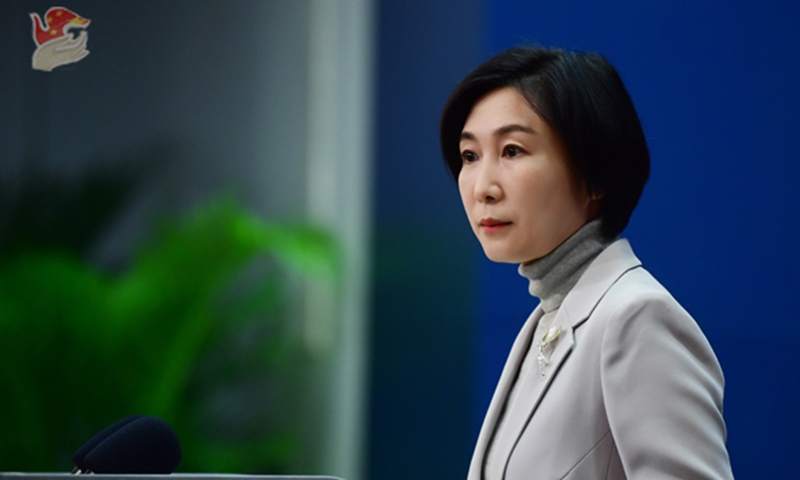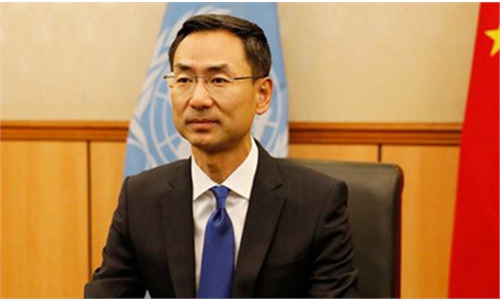Japan urged to take calls from intl community seriously over its dumping of nuclear-contaminated water

Chinese Foreign Ministry spokesperson Mao Ning Photo:fmprc.gov.cn
The dumping of nuclear-contaminated water is not Japan's own business, and China is urging Japan to take seriously the just calls from the international community, consult on related issues with stakeholders including its neighbors and Pacific Island countries, deal with the contaminated water in a transparent, scientific and safe way, and accept supervision from the International Atomic Energy Agency (IAEA).
Mao Ning, a spokesperson from China's Ministry of Foreign Affairs, made the remarks in response to a question about the IAEA's review of Japan's discharge plan at Wednesday's routine press briefing.
An IAEA task force established to review the safety of Japan's plans to discharge the water treated by the ALPS (Advanced Liquid Processing System) at the Fukushima Daiichi nuclear power station into the sea has recently released its third report.
The report sets out how the task force is conducting its independent checks of key data related to the monitoring of the safety of the treated water before, during and after its discharge.
But Mao stressed the report did not come to a conclusion on key questions such as authenticity, accuracy and whether data was collected in accordance with standards, which are issues of concern.
The report once again shows that the international community is completely reasonable in harboring concerns over data accuracy, effectiveness of treatment equipment, and the uncertainty of its environmental impact.
It is reckless and irresponsible for Japan to approve the plan to discharge the nuclear-contaminated water into the sea and forcibly advance preparations for the discharge when the IAEA technical task force is still working and has not drawn any conclusions, Mao said.
According to Japan's plan, it will start to dump the nuclear-contaminated water from the spring of 2023 despite anger and strong opposition from South Pacific countries.
Adding to their skepticism is the bad record of Tokyo Electric Power Company (TEPCO) which operates the Fukushima plant. The company indicated that the vast majority of the wastewater had already been treated until 2018, when it acknowledged that only a fifth had been treated sufficiently.
Global Times

